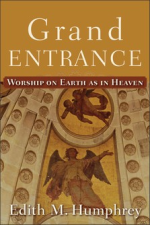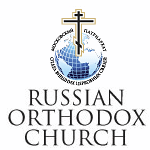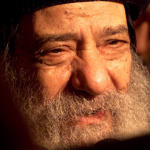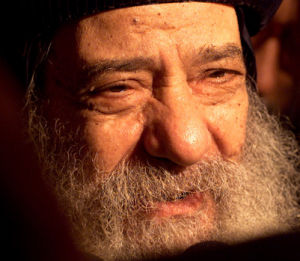Deprecated: trim(): Passing null to parameter #1 ($string) of type string is deprecated in
/home/aoiusa/public_html/wp-content/plugins/sexybookmarks/public.php on line
388
Deprecated: trim(): Passing null to parameter #1 ($string) of type string is deprecated in
/home/aoiusa/public_html/wp-content/plugins/sexybookmarks/public.php on line
394
Deprecated: trim(): Passing null to parameter #1 ($string) of type string is deprecated in
/home/aoiusa/public_html/wp-content/plugins/sexybookmarks/public.php on line
400
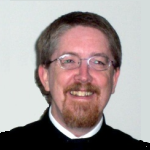 From the essay:
From the essay:
Does the State serve the people or the people the State? The question here is more than just matter of personal or institutional conscience. Rather we must now ask whether the State is willing to acknowledge, and more importantly to defer, to any other authority or law other than its own in the Public Square? If it doesn’t then the State claims for itself the authority to dictate to the Church, to the family and to other social institutions the content and boundaries of their own lives. The practical effect of all this is to make the Church and the family creatures of the State and so subject to the partisan calculus of American politics.
Source: Koinonia | Fr. Gregory Jensen
The wisest thing in the world is to cry out before you are hurt. It is no good to cry out after you are hurt; especially after you are mortally hurt. People talk about the impatience of the populace; but sound historians know that most tyrannies have been possible because men moved too late. It is often essential to resist a tyranny before it exists. It is no answer to say, with a distant optimism, that the scheme is only in the air. A blow from a hatchet can only be parried while it is in the air.
G. K. Chesterton, Eugenics and Other Evils (1922)
Even if often honored only in the gap, the social and economic genius of America is that we do well by doing good and specifically doing good for others. This part of why, again if sometimes only in the gap, Americans have traditionally given such great respect to religion and to its free exercise by individuals and communities. And this is why George Weigel recent analysis off the issues surrounding the HHS recent contraception mandate (here) is important for not only Orthodox Christians but all people of good will. Building on the recent argument made by the Catholic bishops (here), he points out that the issue before us is not contraception or even religious freedom in a narrow sense. Rather he raises a more fundamental, social question that goes to the heart of America as a free and civil society.
Does the State serve the people or the people the State? The question here is more than just matter of personal or institutional conscience. Rather we must now ask whether the State is willing to acknowledge, and more importantly to defer, to any other authority or law other than its own in the Public Square? If it doesn’t then the State claims for itself the authority to dictate to the Church, to the family and to other social institutions the content and boundaries of their own lives. The practical effect of all this is to make the Church and the family creatures of the State and so subject to the partisan calculus of American politics.
And what of the citizens if they don’t push back? What happens if we allow the Church and the family to be co-opted by the State? Initially maybe nothing but in time the members of these other institutions will inevitably betray themselves and their own deepest held moral, religious, cultural and political convictions through a life of gentle compromise. This at least is how I read Weigel’s analysis.
About a decade ago the Orthodox bishops in America proposed that the Church hire what would essentially have been a lobbyist to advocate for our concerns with Congress and the White House. To the best of my knowledge nothing came of this. While I don’t know why we didn’t follow through, I suspect that it was our lack of administrative unity that resulted in this missed opportunity.
We now find ourselves—as I said above—in a position where we are being asked to cooperate with policies that are objectively immoral. We can’t confuse a pastoral willingness to tolerate non-abortive forms of contraception as a concession to weakness with it being a good thing (see here). Much less can we collaborate with a policy that requires as a matter of law that we finance early term abortions. While we can, and I think should, be tolerant in our pastoral response to contraception, we can’t remain indifferent to the grave threat to civil society embodied by the HHS mandate.
Responding to this and future challenges will need a degree of internal unity and cooperation that builds on but necessarily transcends our admirable dogmatic agreement. Essential though right doctrine is to the health and unity of the Church without prudence it can become a trap. God by His grace and love for mankind preserved the faith of the Orthodox Church through centuries of oppression and persecution. For this we must thank God daily. We are, thank God and as Weigel points out in his essay, not facing the kind of attack today that we have experience in the Soviet era, under the Ottoman yoke, or the great persecutions of the early Church.
But as gentle as voice might be that commands us to betray Christ, it still commands us to do so. We can’t cooperate with moral evil; we can’t cooperate with the injustice being proposed under the cover of law. Simply put, we can no more do the Enemy’s work for him in this generation than could Christians in ages past. If there is a desire to destroy the Church, for the State to tell us when we are, and aren’t, functioning in that Name above every other Name, then so be it. What we can’t do is cooperate with that demand; at least we can’t cooperate if we wish to remain true to Christ, ourselves and to the witness of the martyrs.
Important though the specific issue is it is equally important that we as Orthodox not miss an opportunity to act in concert with each other. The American Orthodox Church, however administratively fractured, is still one Church. And we are one Church in a political and social context which, for all current and historical faults, affords us an extraordinary degree of freedom to live our lives and to proclaim the Gospel.
Such freedom brings with it a responsibility that is at once not only moral and evangelical but also political. If we are not active in our proclamation of the Gospel in the Public Square and in the Halls of Power, then it is likely that even our finest preaching from the Pulpit will be undone. We need not only missionary clergy, especially bishops, but also missionary laypeople who will bring the Gospel to the Culture and to the Congress. If recent events demonstrate anything it is that Orthodoxy in America needs to be proactive in our dealings with all levels of government but especially at the federal level.
There is a parallel between evangelism and lobbying that suggests to me that our efforts in the latter would, by God’s grace, be met with success. We have demonstrated in our evangelical efforts our ability not only to change lives but also concurrently to generate the social capital necessary to further the Church’s mission. The first we call repentance, the second the parish. Though lobbying would present its own challenges, these are challenges that we have a demonstrable ability to meet. Why do we imagine that we can’t successfully call politicians to repentance and to pass laws that—while not explicitly Orthodox in form or content—are at least not opposed to the Gospel?
We must move beyond responding only to our own immediate and often intramural concerns. These are important, and none more important than the freedom of the Ecumenical Throne to exercise its ministry in Turkey (see here) or the defense of Christians in an increasingly tumultuous Middle East (for example, here). These can’t be the whole of our concerns.
Effective lobbying is like effective evangelism. Rooted in prayer, it works to cultivate not only friendship with others but also their personal openness and commitment to the Gospel. If we only appeal to Congress and the White House on matters that directly concern us as Orthodox Christians, we will, in the short run, get a hearing. Eventually however I worry that we find ourselves marginalized and ignored, even on matters which concern us directly. “[S]eek the peace of the city where I have caused you to be carried away captive,” we read in Jeremiah, “and pray to the LORD for it; for in its peace you will have peace” (29:7). In the long run to advance the concerns of the Church we must prove ourselves to be good citizens according to the model given us by the Prophet Jeremiah. This means that we must not only pray but also work for the “peace of the city,” for its prosperity and success in the broad and narrow senses. Why? Because “faith without works is dead” (James 2:17). In the political and cultural spheres such a living faith requires that we show ourselves to be advocates for the common good and not simply our own good.
Like evangelism, lobbying is not without its risks. But what is the alternative? Being assertive we risk failure; being passive we guarantee it.
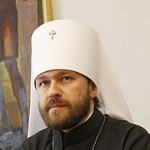

 Source: Russian Orthodox Church Department of External Church Relations
Source: Russian Orthodox Church Department of External Church Relations


